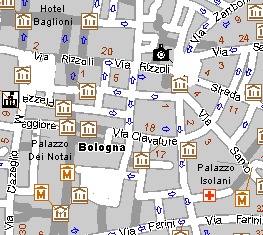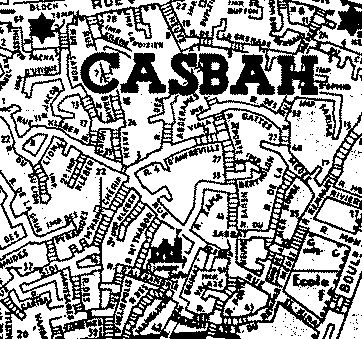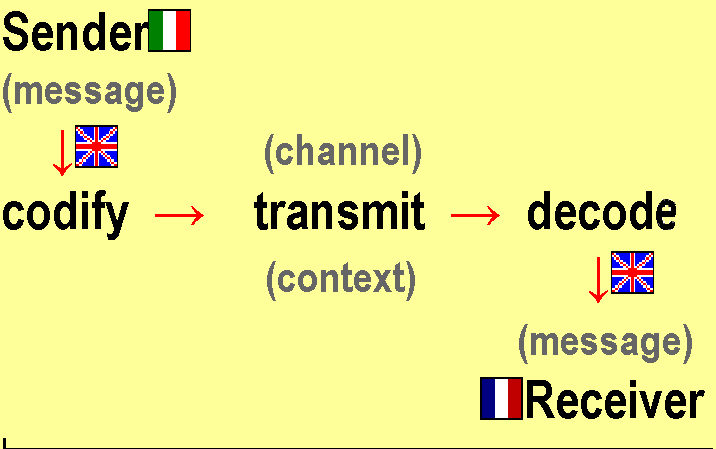 .
.|
. |
|
English
for |
.
|
Communication? Language? English? |
.
"communication"
(Jakobson,
1982: 350-377 [1958])
. .
.
|
"communication" % culturally asymmetrical situations |
||||||||||||||||||||
|
Establish
a relationship in which to search for a common code |
||||||||||||||||||||
.
"language"
1.
langue* or code**
*set
of lexical-syntactic oppositions
**signal/message conversion
rules.
2.
parole (instance*), subset, faculty
*not
an instance of langue
."language"
|
A
sedimentation of experienced %
events* -
links > matrix of Weltanschauungen |
[predisposition to act according to Weltanschauung]
How
to represent a cultural matrix?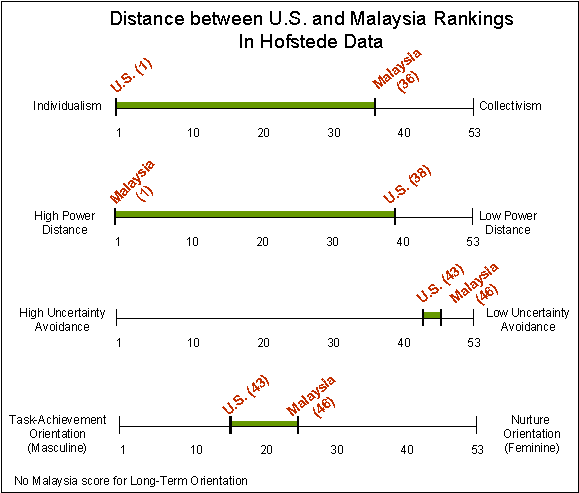
Hofstede,
G. (1980), Culture's Consequences: International Differences in
Work-Related Values. Beverly Hills: Sage.
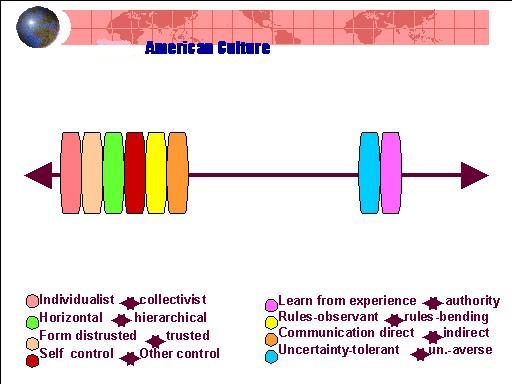
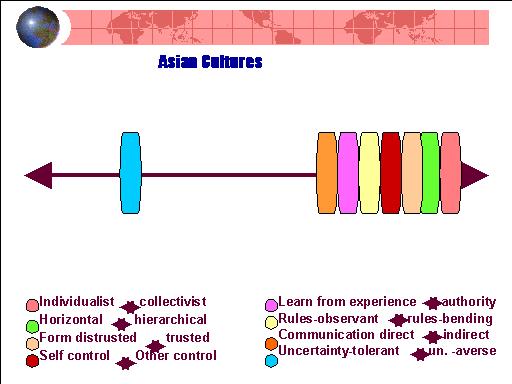
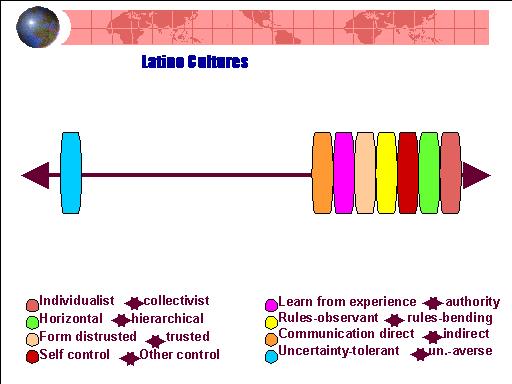
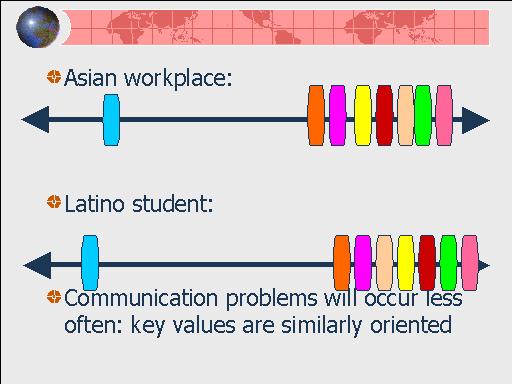
L. Beamer, California State University, www.dialogin.com
English – the study of the sedimentation of instances of wills to mean in a particular way that produce classes of ways of being.
Linguistique
de la parole...
.
the
study of expressive intentionality as
"manifestations...
individuelles et momentanées"
in which "il n'y a rien
de plus que la somme de cas particulers"
.a
study which differs from"la
linguistique proprement dite, celle dont la langue est l'unique
object" –Saussure,
Cours, 1916, p. 25
A. Sechehaye: "...conflit entre ce qui est vivant et ce qui est formel" – Essai sur la structure logique de la phrase,1950
C. Bally marks "le passage d'une stylistique linguistique à une stylistique expressive" – Sylvie Durrer, Introduction à la linguistique de Charles Bally, 1998.
Studying and teaching English...
1. as a way of representing
2. as a way of doing
3. as a way of being <level of CCC* for IC**
*Cross-Cultural Competence for Intercultural Communication
Lexical versus Situational
Meaning:
|
'tardi' |
'late' |
'en retard' |
|
'pulito' |
'clean' |
'propre' |
|
'pasto' |
'meal' |
'repas' |
|
'noi' |
'we' |
'nous' |
|
'ovest' |
'west' |
'ouest' |



"Il
est parti vers l'ouest!"
Où?
![]()
\
\
Trends:
Language
and Intercultural Communication
>
![]()
.
Language / Culture
No:
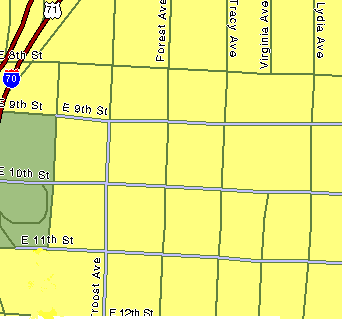
Yes:
